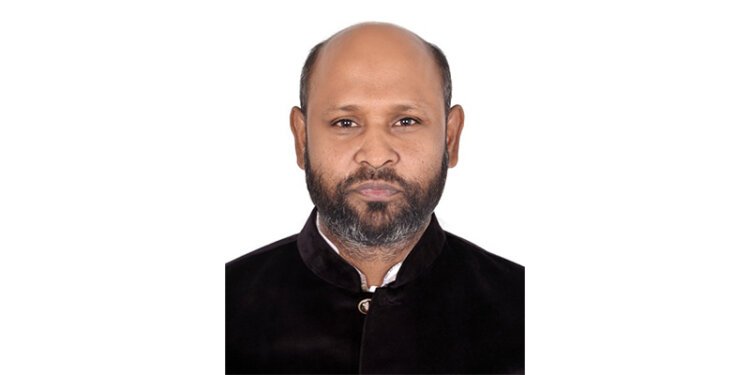The readymade garment (RMG) sector has long stood as the cornerstone of Bangladesh’s economy, providing employment to millions and contributing over 80% of the country’s export earnings. But recent developments threaten to upend this vital industry. The Trump administration’s imposition of an additional 35% tariff on all Bangladeshi export items—on top of the existing 15%—has sent shockwaves through the country’s textile and apparel sector. Given that the United States is the single largest market for Bangladesh’s woven garment products, this abrupt escalation in tariffs poses a significant blow.
According to data from the Export Promotion Bureau (EPB), during the fiscal year 2024–25, Bangladesh exported RMG products worth US$7.54 billion to the US—registering a 14% increase from the previous year. The sharp growth in exports underscores the sector’s deep dependence on the American market. But that success story now faces serious uncertainty. To compound the situation, the US has also demanded a 40% local value addition for Bangladesh’s products to qualify for the “Made in Bangladesh” label—an almost impossible standard given the country’s current manufacturing infrastructure.
The reality is that nearly 70% of the woven garment sector’s raw materials, particularly fabric, are imported from China. This has become a key sticking point for the Trump administration, which seeks to reduce reliance on Chinese materials across global supply chains. As a result, Bangladesh’s textile exports to the US are being squeezed from both ends—by high tariffs and strict Rules of Origin (RoO) requirements.
To navigate this crisis, a Bangladeshi trade delegation led by Commerce Ministry advisor Sheikh Bashiruddin and, notably, Muhammad Yunus’s National Security Advisor Khalilur Rahman is currently engaged in tense negotiations with Washington. The inclusion of a national security advisor in a trade delegation is unusual and raises eyebrows, especially since no clear explanation has been offered. What’s more troubling is Advisor Bashiruddin’s recent statement that the clauses of any forthcoming agreement with the US “shall not be disclosed” to the Bangladeshi public or media. This lack of transparency has sparked widespread concern and suspicion about whether the country is being pressured into agreeing to terms that may go beyond trade—possibly infringing on Bangladesh’s sovereignty or national security.
The Yunus administration’s contradictory behavior has only intensified scrutiny. While it has repeatedly criticized Sheikh Hasina’s previous government for allegedly signing “unfair” or “one-sided” agreements with India, no such irregularities have been substantiated publicly in the past eleven months. Ironically, the same administration now appears to be pursuing a confidential trade deal with Washington—an act that reeks of double standards. No government—whether elected or unelected—has the moral or constitutional right to sign any secret agreement with a foreign power without full transparency and parliamentary or public oversight.
Meanwhile, global retailers are already reacting. Reports suggest that US giants like Walmart have placed new purchase orders from Bangladesh on hold. If this trend spreads, it could trigger massive order cancellations, factory closures, and job losses for millions of RMG workers, most of whom are women from rural backgrounds. There are growing fears of unrest in the industry, especially as international media begins painting a bleak picture of the sector’s future.
At the same time, regional competitors like India and Vietnam are negotiating better terms with the US. According to a Bloomberg report, India might secure a below-20% tariff rate—far lower than the 50% (combined) rate now imposed on Bangladesh. Vietnam has already managed to cap its tariff at 20%. If these developments hold, Bangladeshi products will become significantly more expensive for US buyers, prompting them to shift orders to more cost-effective alternatives.
The underlying issue lies in Bangladesh’s failure to develop robust backward linkages, particularly for its woven garment sector. While the knitwear segment has succeeded in sourcing a significant portion of its raw materials domestically, the woven industry remains heavily dependent on Chinese imports. In the short term, fulfilling the US’s 40% local value addition requirement is impractical. Long-term reforms are needed—but those require vision, time, and substantial investment.
That said, while the US market is undoubtedly critical for Bangladesh, it cannot—and should not—be treated as the only viable export destination. As the situation becomes more precarious, policymakers and industry leaders must urgently explore new markets and diversify their export destinations. Promising alternatives include Latin America, Africa, Southeast Asia, and even the growing Middle Eastern market. Simultaneously, efforts must be made to expand the country’s export basket beyond RMG—into pharmaceuticals, IT services, jute products, ceramics, and agro-processing.
The Trump administration’s tariff onslaught has laid bare a painful truth: Bangladesh’s overdependence on the US market, and its fragile manufacturing base in the woven sector, are strategic vulnerabilities. Instead of relying on opaque negotiations and secretive agreements, Dhaka must chart a bold, transparent, and pragmatic course forward. That means continuing diplomatic efforts with Washington but also investing in domestic capacity, upgrading technological capabilities, and—above all—diversifying export markets. Failure to act now will not only jeopardize the RMG sector but also risk broader economic and social instability. In the shifting tides of global trade, Bangladesh must learn to swim on multiple shores—or risk sinking with a single anchor.



